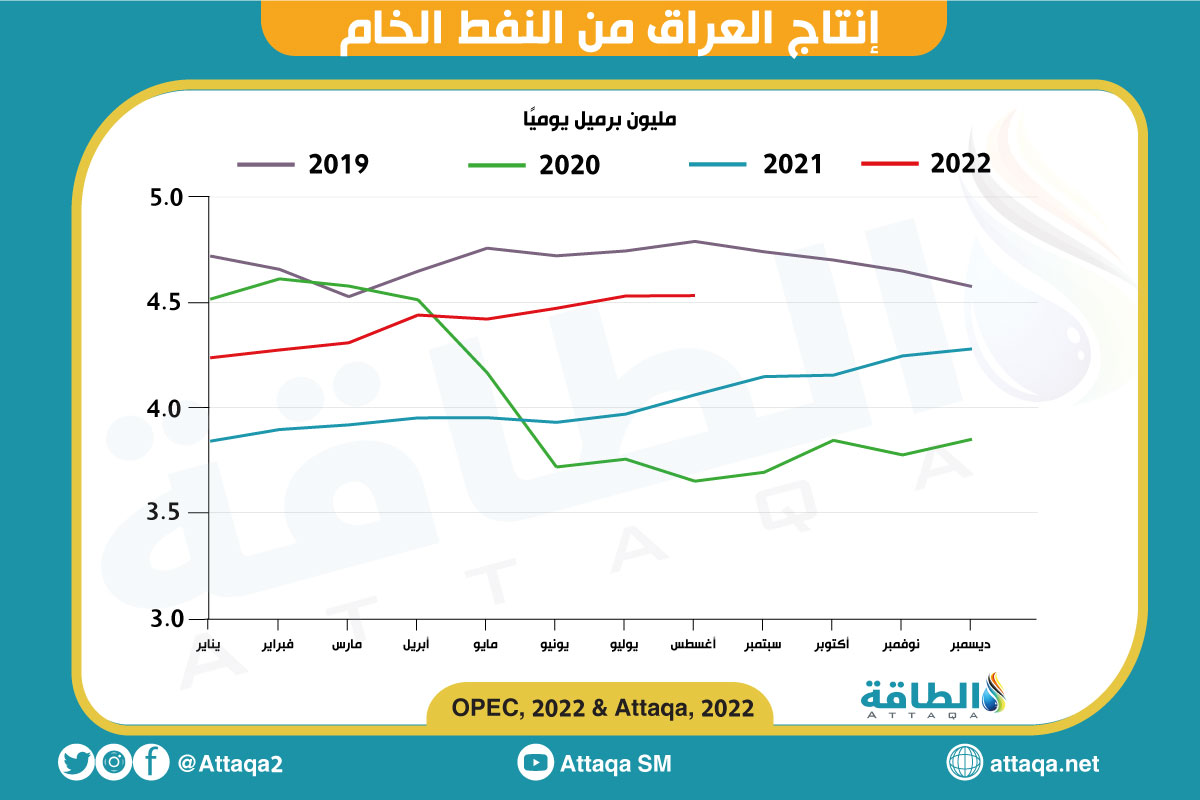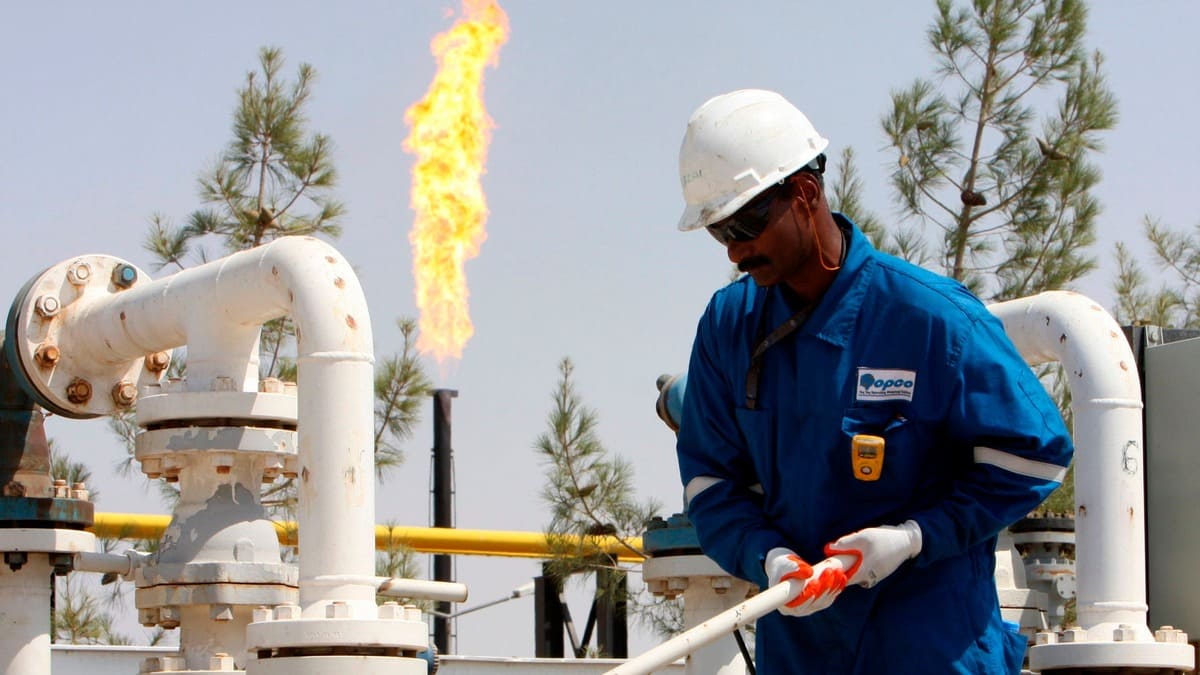Iraqi Kurdistan’s oil faces an unknown fate after Turkey halted pipeline exports, implementing a court ruling in Baghdad’s favor that ended a nearly 9-year-long case.
Companies operating in the Kurdistan region of Iraq have been forced to transfer oil to storage tanks, which have limited capacity, pending the outcome of the ongoing discussions between Ankara, Baghdad and the Kurdistan Regional Government, to find a way to resume exports.
Iraqi Kurdistan’s oil exports had stopped to the Turkish port of Ceyhan in the Mediterranean, at the end of last week, after the end of the long-running arbitration case between Ankara and Baghdad, according to information seen by the specialized energy platform, quoting Reuters.
Iraq had filed a claim with the International Chamber of Commerce in Paris in 2014 that Turkey had violated the terms of the 1973 bilateral agreement by allowing the KRG to export crude oil through the Kirkuk-Ceyhan pipeline without Baghdad’s consent.
Last week’s decision prompted Turkey to demand, on March 25, to stop the flow of Iraqi Kurdistan’s oil to the port of Ceyhan.
Iraqi Kurdistan oil exports
Crude oil exports from northern Iraq – represented by the Kirkuk blend – averaged 452,000 barrels per day last year (2022), according to tracking data monitored by the specialized energy platform, quoting Argus Media.
More than 380,000 barrels per day were marketed by the KRG, and the Iraqi Oil Marketing Company (SOMO) was responsible for the rest, all of which went to Turkish oil refiner Topras.
The last shipment of Kirkuk blend left the port of Ceyhan aboard the African vessel Marietta, according to data from oil analytics company Vortexa.
The tanker left the port on March 24 and is expected to arrive in Ashkelon, Israel, on March 29.
SOMO awarded a cargo of Kirkuk blend for loading in April to Greek refiner Motor Oil Hellas via spot tender earlier this month, according to market participants.
The cargo was scheduled to be loaded from the port of Ceyhan on April 3-5, and it is not possible to redirect exports from the fields in northern Iraq to another port.
The following chart – prepared by the specialized energy platform – shows Iraqi oil exports from 2019 until early 2023:
Iraqi Kurdistan oil storage
The Norwegian company “DNO” and the British “Genel Energy” – which also operate in the region – said that they are currently storing oil in tanks, which can accommodate several days of production.
DNO announced that it had begun shifting production from fields it operates in northern Iraq to storage tanks on March 25.
DNO operates the Tawke and Bashkaber fields, which together will produce 107.1 thousand barrels per day in 2022, and the company said its storage facilities can “accommodate several days of production” from the fields.
Meanwhile, Genel Energy, which is involved with DNO in the Tawki and Bashkaber fields, said that statements from Baghdad and the Kurdistan Regional Government, since the ruling, had led it to “believe that the shutdown will be temporary.”
The British company said it continues to produce and store oil.
In addition to its interests in the Tawki and Bashkaber fields, Genel also has an operating stake of 30% in the Sarta field and a 44% interest in the Taq Taq field, which produced 4,710 bpd and 4,490 bpd, respectively, last year (2022).
Reducing Iraqi Kurdistan’s oil production
Gulf Keystone, whose sole production assets are the Sheikhan oil field in the Kurdistan region of Iraq, said it had “cut back” its production since being informed of the halt in exports to Turkey, but like Genel said it believed the suspension would be temporary.
She explained that “its facilities have storage capacity that allows production to continue at a reduced rate during the coming days, after which the company will stop production.”
Sheikhan produced 44.2 thousand barrels per day of crude oil in 2022, although only last week Gulf Keystone announced that it has since increased production to a record 55 thousand barrels per day.
For its part, Shamaran Petroleum, another operator, said in a statement: “The company will remain in close contact with other oil producers in the Kurdistan region and with relevant government officials, and will continue to closely monitor this situation.”
The following graph – prepared by the specialized energy platform – shows Iraqi oil production from 2019 until early 2022:

Attempts to resolve the Kurdistan region conflict
It is unclear how long this turmoil will last, but increased diplomatic activity between the two sides has raised hopes for a quick resolution to the conflict, whether temporary or permanent.
The head of external information affairs in the Kurdistan Regional Government, Lawk Ghafouri, said that the decision of the International Court of Arbitration “will not impede our relations with the Iraqi federal government.”
For his part, KRG Prime Minister Masrour Barzani confirmed that a delegation from his administration was scheduled to arrive in Baghdad on March 26 to discuss how to overcome the impact of the court ruling.
He said: “Our recent understandings with Baghdad laid the foundation for us to overcome the arbitration ruling. A team from the Kurdistan Regional Government will visit Baghdad to build on the good intentions of our discussions.”
related topics..
Also read..

Leave a Reply